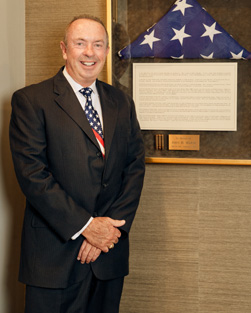Frequently Asked Questions
 Q: How is Excalibur Financial Services compensated?
Q: How is Excalibur Financial Services compensated?
The fee is the solution, not the problem. – Gary J. Marsh
1. Comprehensive Financial Planning
We charge a fee based on the complexity of your situation. We collect in-depth data and come back to you with the benefits and the cost upfront before you incur any charge.
2. Portfolio Management
We charge a flat percentage annual fee based on the client’s assets under our management. Using this type of arrangement allows us to be objective and provide the best solutions for the clients.
3. Investment Analysis
We are pleased to provide this service free of charge, because we find that many people choose to engage Excalibur’s services to manage their investments after seeing the in-depth analysis and unique insights we provide.
4. Insurance Analysis
We also provide this service at no cost to the client. We have established close relationships with insurance underwriters and actuaries at hundreds of our affiliated companies that are valuable resources in this area.
5. Goodwill
If we do everything we say we can do and truly improve your situation better than anyone else has done for you before, we will ask that you recommend us to other successful people who you feel may benefit from our work.
Q: Am I required to buy financial products from Excalibur?
There may not be a need for financial products, whether investment or insurance related. Your situation and objectives will determine that. If you do decide to acquire a product based on the work that we have done, we will ask that you place that business through us.
Q: Should I leave my current retirement account with my current employer?
Generally no. Consider the following:
- Most employer plans have limited investment choices.
- Corporate Human Resources department don’t provide personal investment advice.
- 401(k) providers are generally not allowed to provide you with investment advice. Excalibur Financial Services on the other hand, builds personalized custom portfolios taking into account our clients resources, objectives and risk profile
Q: What do you mean by creditors and predators?
Most people cannot afford to lose everything they have accumulated at this point in their life. Especially nearing retirement, it would be difficult or impossible to make it all back. Generally speaking, people want to pay their rightful creditors (i.e mortgage, loans and credit cards). However, people do not want to pay a predator. This is a person who is not entitled to compensation or someone who is trying to take advantage of your business and financial success. Please note that liability insurance is only a small part of the solution. We can help.
Q: How do I know how risky my portfolio is?
Excalibur Financial Services has developed a process that includes proprietary software that will compare your portfolio to one that minimizes risk for a certain level of return. It is much like a financial EKG. It can evaluate your current situation and assess any problem areas that might need adjustment.
Q: Will Excalibur replace my CPA?
No. We don’t prepare tax returns or corporate financial statements. We utilize these financial documents to be proactive, so as to favorably impact you and your business tax-wise today and into the future.
Q: What does Excalibur do to safeguard my personal information?
At Excalibur, we use the most advanced tools and techniques available to ensure your confidentiality is protected and our electronic data is safe and encrypted. We do not and will not share information about anyone we have spoken to, whether they become a client or not. We do share information, when appropriate, with a client’s CPA and Attorney.
Q: Is the work continuous?
Yes. Changes occur in family, business, objectives and tax law. We share in the responsibility of keeping the planning up-to-date.
Q: Can you explain in plain English what Excalibur does for their clients?
- Help you send as little of your money as possible to Uncle Sam.
- Have your money make more money while you work and after you retire.
- Make sure the growth of your money keeps up with the prices of a gallon of gasoline and a gallon of milk.
- Ensure you aren’t playing roulette with your investments.
- Make sure that your assets are passed to who you want, when you want, with the least amount of expenses and taxes.
